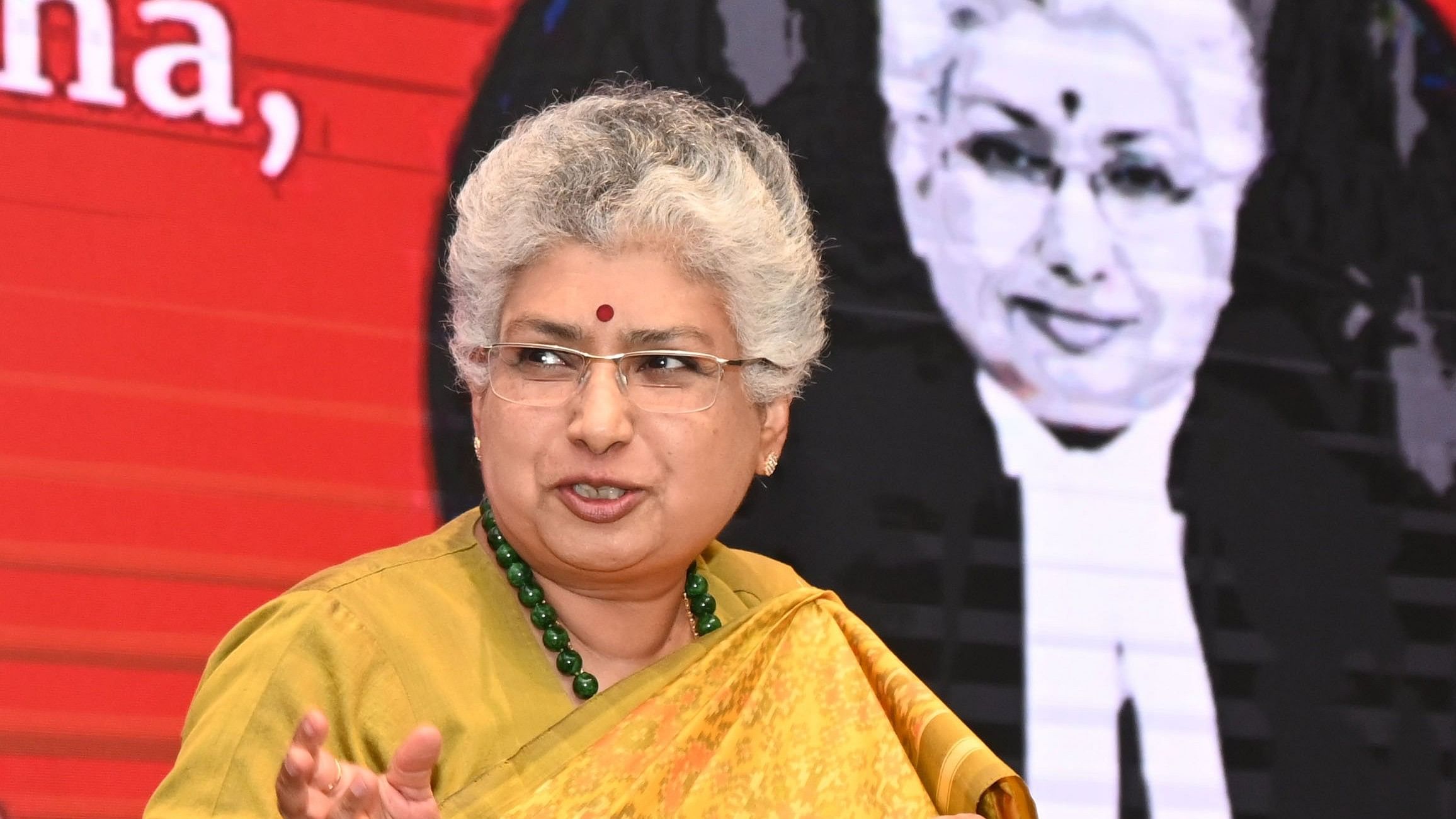
Supreme Court Judge Justice BV Nagarathna delivers the keynote address at the PACT Project-NLSIU conference in Bengaluru on Saturday.
Credit: DH Photo/B K Janardhan
Bengaluru: For a transformative change in society and securing true ‘constructive citizenship’, the protection of law must ensure that women don’t have to strike a bargain between motherhood and employment, Supreme Court Judge Justice B V Nagarathna said. She was delivering the keynote address on ‘Home in the Nation: Indian Women’s Constitutional Imaginaries’ for the Pluralist Agreement and Constitutional Transformation (PACT) Project-NLSIU conference.
Justice Nagarathna said that Indian women’s participation in the constituent assembly has fundamentally impacted the constitution’s transformative approach. She recalled the contributions made by women members of the constituent assembly such as Durga Bai, Leela Roy, Renuka Ray and Vijayalakshmi Pandit.
Justice Nagarathna said the most articulate and comprehensive advocacy for gender equality as a fundamental right was through the Indian Women’s Charter of Rights and Duties in 1946, drafted by Hansa Mehta, a social activist and feminist. The charter not only enshrined a right to vote for all men and women but also proclaimed that women shall have a right to be represented in the legislatures, municipalities, local bodies or delegations that the government may appoint or call whether for service at home or abroad, Justice Nagarathna said.
She further said the valuable endeavours and efforts of the founding mothers must be carried forward by every succeeding generation of not only women but by all concerned. They did not limit themselves to only gender rights or women’s position in Indian society, she said. “I am reminded of the words of Hansa Mehta on Pandit Nehru’s Objective Resolution. For her, the delight of equality of status and equality of opportunity for all women in a free India was impaired by the reality of tribulations that inhibit availing such equality. One swallow does not make a summer, she said and I am compelled to agree,” she said.